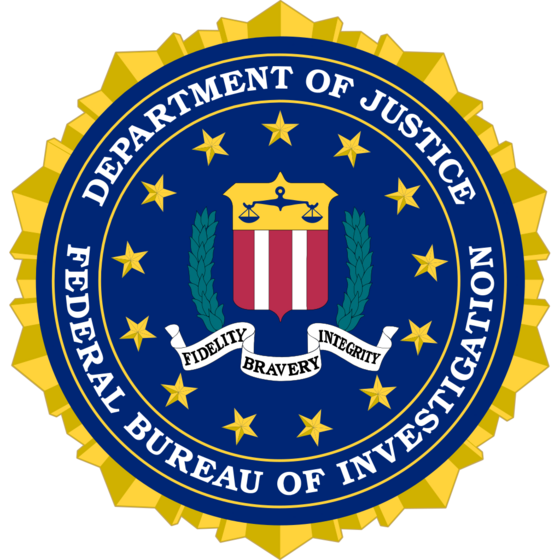
Edgar J. Hoover becomes head of the FBI
Dr Volker Mittendorf/ Political Science
Photo: UniService Transfer
Secret dossiers were his most important instruments of power
Political scientist Volker Mittendorf on Edgar J. Hoover, who became head of the FBI 100 years ago
Who was John Edgar Hoover?
Mittendorf : John Edgar Hoover was certainly one of the most powerful men in the USA during his lifetime as head of the Federal Bureau of Investigation (FBI). Hoover developed the FBI from a rather insignificant, scandal-ridden agency into a large and professionalised company within the American state.
In 1920, Hoover organised one of the largest mass arrests in the USA, the so-called Palmer raids. What was that about?
Mittendorf : You have to categorise it within the American system. The decisive factor is that the Attorney General, no different from the Federal Prosecutor General in Germany, can only investigate crimes that affect the entire state, so to speak. The Palmer raids in 1920, at the end of the First World War, must be viewed against the backdrop of the Russian Revolution and the associated fear of communists. There was concern about imagined and actual attempts to overthrow the government, and immigrant groups were suspected of acting in a communist or radical left-wing manner. And the former Bureau of Investigation (BOI), whose head at the time was not yet Hoover, arrested many people, often without any legal basis. The fear then returned in a similar form in the 1950s with McCarthyism.
The predecessor institution of the Federal Bureau of Investigation, or FBI for short, was called the Bureau of Investigation (BOI) and had the worst possible reputation. Why was that?
Mittendorf: Primarily because many investigations were carried out illegally due to fear of communists and treason. The professionalisation that was felt to be necessary didn't really work, as the head of a former detective agency had been appointed at the time. Pinkerton was one big detective agency and Burns was the other. William John Burns was therefore supposed to professionalise the BOI and improve its investigative methods. In view of the fact that the federal state in the USA initially had hardly any direct powers of criminal investigation - except, for example, in cases of treason and crimes committed by the stock exchange and financial supervisory authorities - hopes were pinned on him. However, he was caught up in the maelstrom of two corruption scandals and was forced to resign. Hoover seized the opportunity and became head of the authority himself.
On 10 May 1924, Hoover became head of the institution. How did he get there?
Mittendorf: Hoover was very committed and accomplished and had a business model in mind. He managed to recommend himself at the right time. The historical process is perhaps not so important; what is more exciting is that he succeeded in dominating this agency, which had already had six heads since 1908, and expanding it to such an extent that it functioned more or less like a state within a state. He maintained this power throughout his life. He was able to do this because he had dossiers compiled on his bosses, superiors, politicians and important public figures, to which only he and his secretary had access. This was one of his most important instruments of power. If someone sawed at his chair, he could simply pull out a file on that person containing precise information about their private life. For example, he knew all about John F. Kennedy's love affairs and thus became untouchable for the Democrats over the decades. After his death in 1972, there were many reappraisals. The suspicionless wiretapping measures - the most famous example is perhaps the Marylin Monroe case - were placed under judicial reservation and the role of the FBI was reassessed.

Logo FBI
Photo: public domain
What did he change after taking office?
Mittendorf : He not only knew how to cater to the fear of the communists, but he also addressed all the issues relating to the consequences of industrialisation, which were becoming increasingly important. People became more mobile and crimes often crossed state borders or took place in several states. They were perceived by Hoover as a federal issue and then written into federal law. In the USA, the individual states themselves are responsible not only for setting up their own police forces, but criminal laws are also enacted in the individual states (and also at federal level). Only a few criminal laws exist at the overall federal level. These included state treason and cross-state crime. He brought the FBI to the forefront of society's attention. In doing so, Hoover made a name for himself relatively quickly by drawing not only politicians but also the public to the FBI's side. He did this with the introduction of the 10 public enemies No. 1, John Dillinger (American bank robber, editor's note) was the first of these. It then became 'cool', so to speak, to be an FBI agent. He also became involved in Hollywood early on, when the first crime series were made for television, where the FBI was emphasised as the positive agency. He realised that crime must also be prosecuted across national borders and popularised this view. In the 1930s, it developed access options and thus entered into competition with the police authorities of the states, in complete contrast to our BKA, because although they are allowed to investigate, they are not allowed to access: the police are a state matter. This has been different for the FBI since Hoover. Weapons possession and access made the FBI increasingly important as an authority. As a result, it was given more and more employees and was able to secure many resources. On the one hand, he worked covertly in the area of state security and, on the other, very publicly in the area of organised crime. He professionalised his own file management and turned the FBI into a very effective agency.
Hoover was not without controversy, but had great influence on presidents, attorneys general and members of Congress. How?
Mittendorf : The FBI was originally assigned to the Attorney General, later to the Department of Justice. Its influence was mainly due to its knowledge advantage over the office holders themselves. There is some evidence of how he more or less used his knowledge to make it clear to one of his most important opponents, Robert Kennedy, that removal from office was out of the question for him. Because he compiled files on people at a very early stage, he was also able to help "his" politicians with their careers.
He was an opponent of the civil rights movement through Martin Luther King, whom he labelled a "black messiah". The Kennedys hated him. Why?
Mittendorf: He was extremely conservative, rather opposed to democrats. His hatred of communists was well known, you couldn't necessarily accuse him of racism, but he was already an enemy of the civil rights movement, because he persecuted them just as much as the communists. For him, this movement wanted to change the state in the sense of more equality for all citizens, and that was not in his favour.
He remained highly respected until his death. Helen Gandy, his personal assistant, coordinated the destruction of all his documents after Hoover's death. Why?
Mittendorf: Hoover had secret files that were only encrypted according to a personal key that only he and his secretary knew. That was unusual even in the USA at the time. Above all, they were not investigation files that had been opened for crimes, but dossiers with personal weaknesses about all kinds of people in culture, the media (especially in Hollywood) and politics. These were not to become public knowledge, even after his death. That's why he made sure that these dossiers were destroyed after his death.
Mr Mittendorf, you have worked on "Democratic Theory and Government System Research" and current and long-term developments in political forms of rule. How important are secret services for politics?
Mittendorf : That brings us to what we have in Germany. At the beginning of my work at the university, I dealt more intensively with the political field of "internal security" in a working group, especially from the perspective of comparing it with the development of the Federal Criminal Police Office 50 years later and less from the perspective of intelligence history. Germany has no secret services in the strict sense. A secret service is an authority that works in secret and also has access rights. The intelligence services in Germany do not have such access rights (such as covert operations). The Federal Intelligence Service or the Federal Office for the Protection of the Constitution are allowed to investigate, i.e. analyse information and use informants or similar, but they are not allowed to take operational action in Germany. In principle, this also applies to the BKA, which is an investigative authority and is not authorised to carry out operations and, for example, provides support to the state police forces. This is a lesson learnt from the Nazi era, when the secret state police secretly investigated, operated and intervened. That is why a distinction is made between police powers and intelligence service powers. A second important and also exciting point in comparison to the USA is that, in Germany too, mobility and globalisation mean that crime is changing and does not stop at national and state borders. This leads to the objective necessity of cross-border investigation work and work on internal security. This is not a development of the 1990s, but has been a trend since industrialisation and is becoming increasingly European and global. Fighting crime today is no longer possible with local authorities alone, who only focus on their own area. This became particularly apparent with the FBI in the organised crime of the 1920s. And since the 1960s and 1970s, there have also been corresponding spurts of development in Germany. The realisation has grown that internal security measures must also be taken across borders. Hoover certainly recognised this very well, and that is certainly one of the reasons why he was able to retain his post as head of the FBI for over 40 years. However, the fact that the accumulation of power is also problematic was recognised after his death and laws were passed that made the methods more constitutional.
Uwe Blass
Dr Volker Mittendorf is an Academic Councillor at the University of Wuppertal (BUW). His fields of research include the political system of the Federal Republic of Germany, local political research, participation, the effects of direct democratic procedures and argumentation patterns in election campaign communication.
